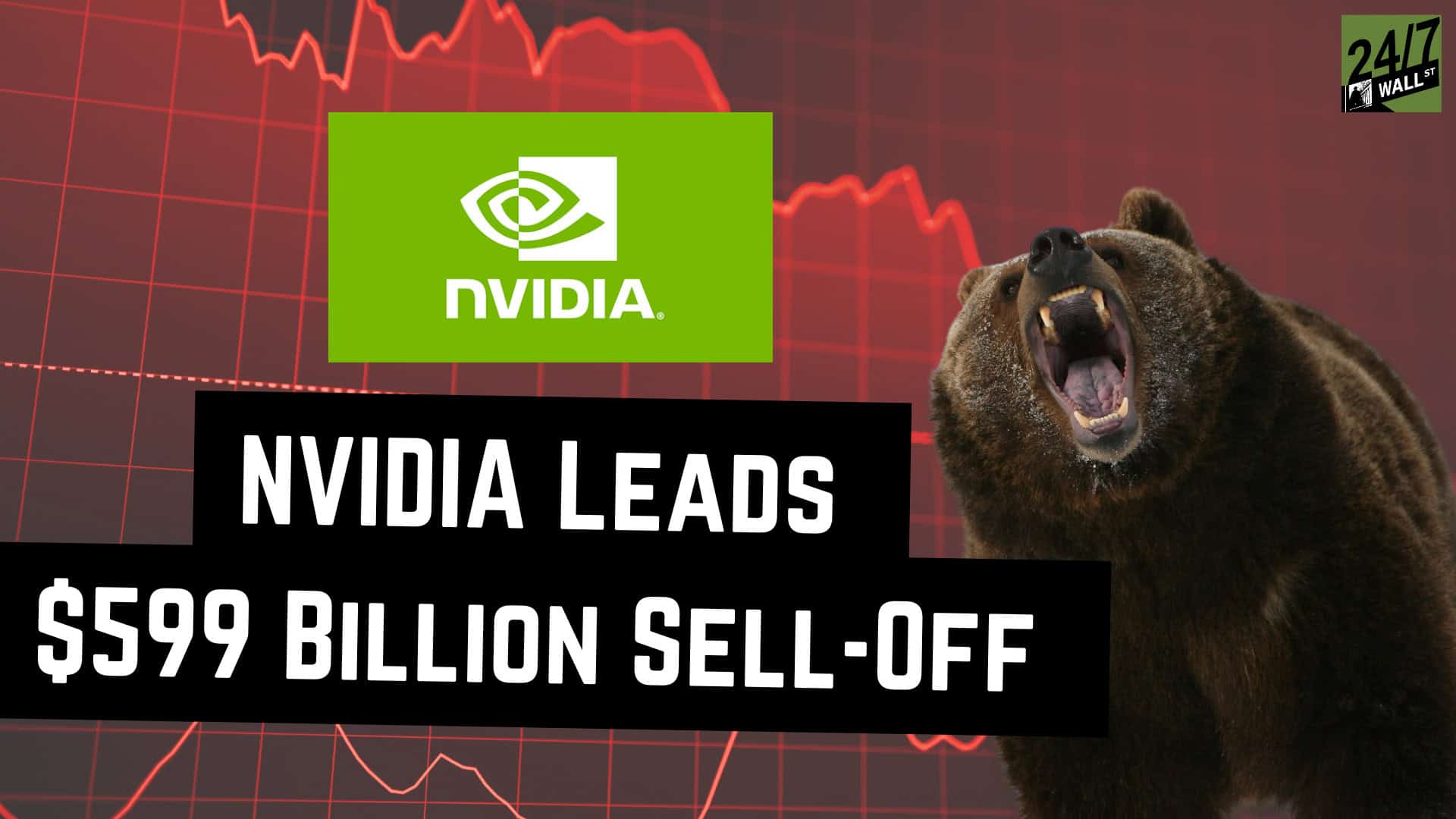Investing
NVIDIA and Tesla Lead $599 Billion Magnificent 7 Sell-Off in Thursday Trading

Published:
Last Updated:

The story of the past few years has been a large divergence between the performance of large tech stocks like the Magnificent 7 and the indexes filled with smaller stocks like the Russell 2000. If only for a day, that trade reversed in a historic level on Thursday.
Let’s check in on what happened in the markets, how much Magnificent 7 stocks lost, and explain why this sudden reversal started.
Depending on what index you’re looking at, Thursday was either a very good or very bad day.
The highlight is the divergence between the Nasdaq and Russell 2000. There’s only been a single day in the past 30 years where such a large divergence existed between these two indexes: On November 9, 2020, the Russell 2000 gained 3.7% while the Nasdaq-100 lost 2.16%.
Why was today such an extreme divergence? The primary news was a CPI reading that came in lighter than forecasted. The Federal Reserve reported inflation rose by 3% year-over-year in June. Cooling inflation points to a higher likelihood that the Federal Reserve will begin cutting rates.
Rate cuts would benefit the entire economy. Yet, investors have piled into large technology companies across the past 18 months in part because their growth looks secure while many small cap stocks have struggled to grow in the current market.
One example, the Nasdaq-100 (which investors often buy the Invesco QQQ ETF to get exposure to), is up 86% since the start of 2023 while the small cap-focused Russell 2000 is up just 21.4%
In short, investors are betting that small cap stocks have more to gain from rate cuts and heavily rotated back into them after today’s CPI print. It’s worth noting that even before today’s sell-off, the QQQ led ETF outflows yesterday with a negative $945 million in daily flows.
Checking in on the performance of Magnificent 7 stocks, the biggest laggards on Thursday were NVIDIA (Nasdaq: NVDA) and Tesla (Nasdaq: TSLA).
| Company | Share Price Drop on 7/11 | Percent Drop on 7/11 | Market Cap Lost |
| NVIDIA | $7.51 | -5.6% | $184.6 Billion |
| Microsoft | $11.55 | -2.5% | $85.8 Billion |
| Apple | $5.41 | -2.3% | $83.0 Billion |
| Tesla | $22.23 | -8.4% | $70.9 Billion |
| Alphabet | $5.61 | -2.9% | $69.3 Billion |
| Meta | $21.99 | -4.1% | $55.8 Billion |
| Amazon | $4.74 | -2.4% | $49.3 Billion |
Add it all up and the Magnificent 7 as a group lost $599 billion in value on Thursday alone. NVIDIA was down 5.6% and lost $185 billion in market capitalization while Tesla dropped 8.4% and saw its value drop by nearly $71 billion.
The big question surrounding the Magnificent 7 headed into the second half of 2024 is whether they’ll continue commanding premium valuations relative to the rest of the market.
Headed into today, NVIDIA, Microsoft, Apple, and Amazon were all trading between 32 and 35X forward earnings while the broader stock market traded closer to 21X. Of course, while today featured investors simply rotating out of large tech stocks and into small caps, one consequence of the Federal Reserve beginning to cut rates could be a more broad rally that sees the entire index rise to a higher multiple like 25X forward earnings.
Thank you for reading! Have some feedback for us?
Contact the 24/7 Wall St. editorial team.